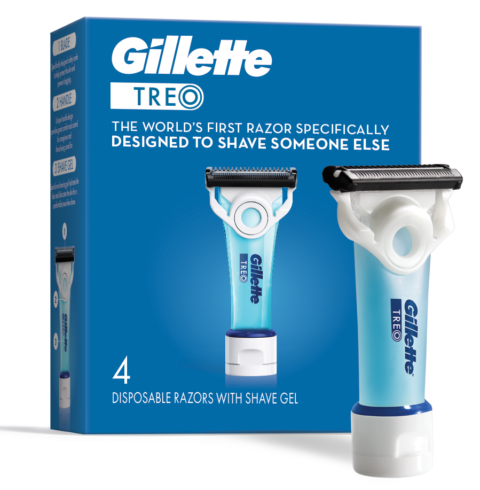
Phone: 212 520 1686
Email: info@yourcpf.org
Grooming and Self Care Tips for the Cerebral Palsy Community
If you are the parent or caretaker of someone with cerebral palsy, then you know how challenging some of the most routine self-care tasks – such as brushing teeth, combing hair, shaving, and more – can be. People living with CP understand the importance of grooming and self-care, but sometimes they are limited in their ability to do it themselves.
Luckily, there are an increasing number of resources available to help with these daily tasks, including assistive gadgets designed to make the activity doable, re-engineered favorites designed from the caregiver’s perspective, and enlisting the help of a professional caregiver to support in these tasks. We’ve partnered with Gillette, who has recently launched the world’s first razor for assisted shaving, to round up some great suggestions that make your grooming routine a little easier – particularly when it comes to shaving and oral hygiene.
Shaving
Many people living with cerebral palsy have difficulty shaving themselves or are not able to shave at all because of trouble grasping, muscle spasms or muscle weakness. Whether the desired look is a trimmed beard, zero facial hair or clean-shaven legs, everyone deserves to look and feel their best regardless of circumstance. With this in mind, Gillette created the TREO razor, the world’s first razor designed specifically to shave someone else.
The Gillette TREO razor is designed to be held the same way a painter would hold a paintbrush, providing control and comfort for both the caregiver and the person receiving the shave. TREO’s single blade features a safety comb designed to prevent nicks and cuts, and prevent clogging. The 3-in-1 razor also has a non-foaming shave gel built into the handle. The gel is clear, so caregivers can see where they have shaved; it also hydrates the hair and lubricates the skin for a comfortable, mess-free shave. Because of the hydrating gel and the open blade design, no water is required when using TREO. This means shaving can be done wherever is most convenient.
Oral Hygiene
Oral health is one of the most important aspects of self-care, for reasons both medical and psychological. Drooling issues, poor coordination and muscular limitations can make tasks like brushing teeth even harder for those with CP. As a result, teeth can be more susceptible to plaque retention, bad breath and associated dental diseases like decay or gingivitis (gum inflammation).
Good oral hygiene can be maintained by brushing thoroughly twice a day with a soft-bristled manual or electric toothbrush and using fluoridated toothpaste. Children with good manual dexterity should be encouraged to brush their own teeth. Parents and caregivers need to assist with thorough brushing at least once a day, particularly when oral-motor dysfunction is present. Clean between teeth regularly using dental floss, ‘flossettes’ or ‘piksters’ to remove plaque from areas that the toothbrush cannot reach.
Luckily, there are toothbrushes on the market like the Benefit™ Toothbrush that can help. If you aren’t familiar, the Bendent is a triple-head, or 3-sided toothbrush, that enables the user to clean three sides simultaneously with one brushing stroke. This is a great replacement toothbrush for those CP patients who can’t twist their arms or wrists easily using a regular toothbrush. There are also products like toothpaste squeezers to simplify the entire tooth-brushing process.
So, if you are caring for a loved one with cerebral palsy, consider integrating these tips into your daily care routine – we believe even small tips can really help make a difference! You can learn more about the Gillette TREO razor at www.Gillette.com/TREO.





